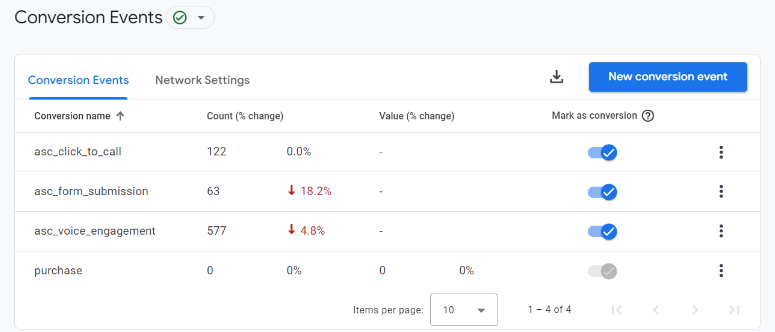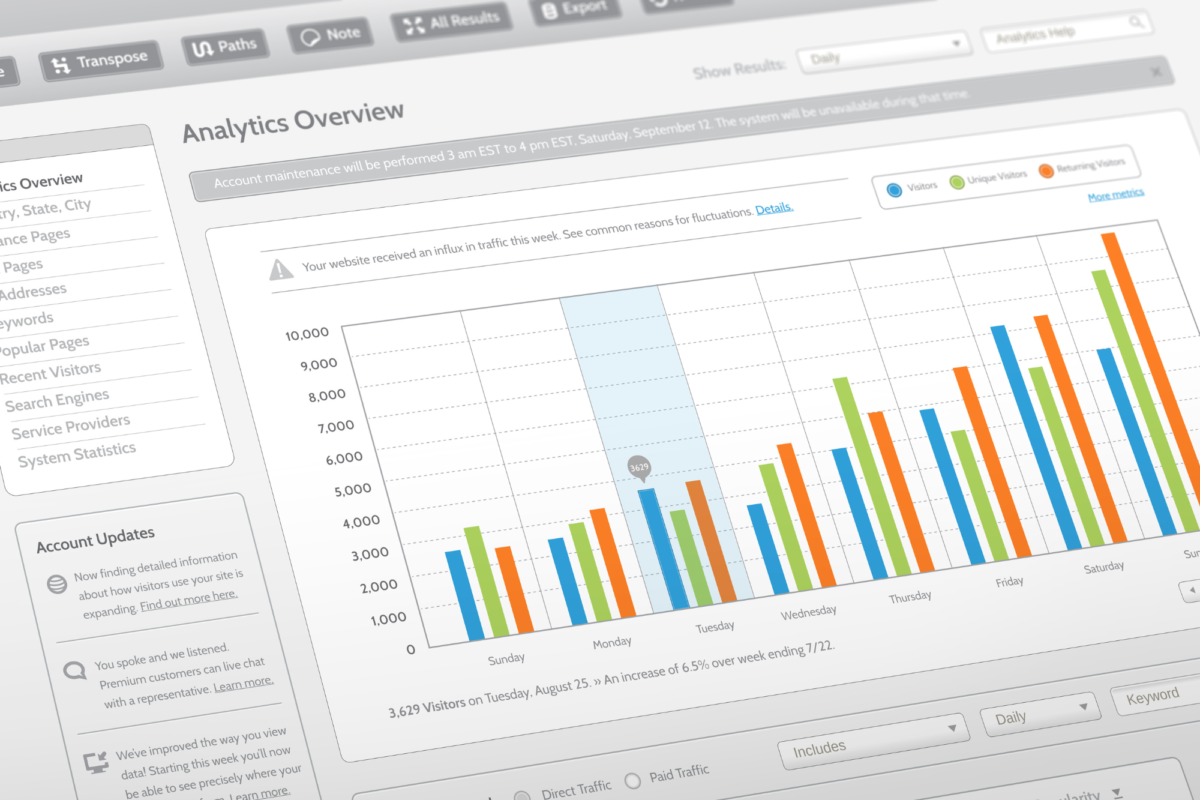Since its launch in October 2020, Google Analytics 4 (GA4) has been a journey. From filter changes to data streams to explorations, it has been a learning experience for everyone, including those at Google. Looking at the GA4 release notes, you can see that Google continues to make updates to make the process of gathering and reporting on data easier.
On March 21, 2024, Google released a new update for GA4 that impacts events, key events, and conversions. I was invited to be part of a small cohort of marketing professionals who had the opportunity to be briefed on the release in advance and share feedback with Google’s ad product experts. Overall, I think the updates are going to provide consistency in reporting for conversions, especially between Google Ads and GA4. Here are my insights from the GA4 release.
GA4 Conversions Are Now Called “Key Events”
One of the changes Google announced is regarding the naming of events and conversations in GA4. Right now, events all flow into your GA4 instance and then you designate the “most important events” as conversions. Those conversions can be brought into Google Ads for optimization of campaigns and reporting. In this environment, you can get cross-channel conversion reporting from both GA4 and Google Ads. Many times, those numbers don’t match, which can be a cause for concern and questions.

Google’s release looks to fix this issue and provide more consistency in both event and conversions reporting. Within GA4, conversions will be renamed to “key events.” Conversions still exist but are configured within Google Ads using GA4 as a source for those conversions. The term conversions will only apply to the events that are shared with Google Ads. Conversions will share measurement settings and backend processing across the two tools.
What This Means for You
For most of us, this means no more discrepancies on the reporting of conversions in GA4 and Google Ads. This also means that events and key events may be measured on and reported differently from the Google Ads conversions.
Remember, GA4 is an event-based analytics solution. Everything in GA4, such as pageviews, scrolling and user clicks, are events. The most important events you want to track, like lead submissions or inventory searches, would be considered your “key events.” The events you want to use for optimization in Google Ads are conversions and those are configured in the Google Ads platform.
Next Steps
The best thing about this GA4 update: there are no action items for you to take! Google is rolling out these naming updates across all their accounts. If you don’t see it right away, you will very soon be able to. You’re also a step ahead if you’ve already set up conversions and imported them into Google Ads. Google will make all the necessary changes on the backend. Within GA4, you will start to see reporting headers from “Conversions” to “Key Events.” There will also be new advertising reporting rolling out once GA4 and Google Ads are connected.
If you’re wondering about your own GA4 setup after reading about this update, don’t worry: there is always time to get your data organized. First, start by making a list of all the events you are tracking on your website. That list should include both hard conversions, when someone makes a purchase or provides information, plus your engagements, also known as the key activities someone may do before the hard conversions. Once you have that list, head into your GA4 admin menu to make sure all the events are there and then upgrade your important events you identified to “key events.”
If it all seems like a lot, we have resources to guide you, for more information, explore more here. Ansira is also here to help consult and guide you through the world of GA4. Contact us today.

